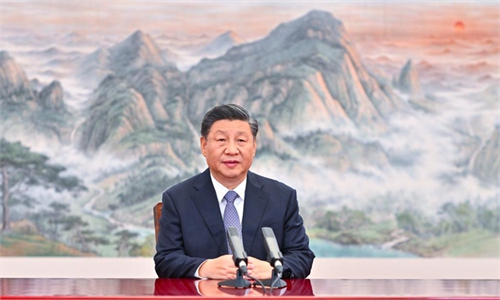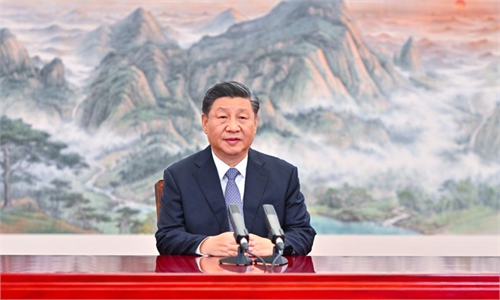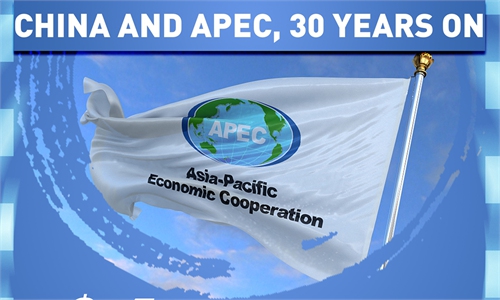Xi underscores openness in APEC cooperation to boost Asia-Pacific economy
China to offer path for economic recovery at APEC leaders' meeting, as small cliques become increasingly unpopular
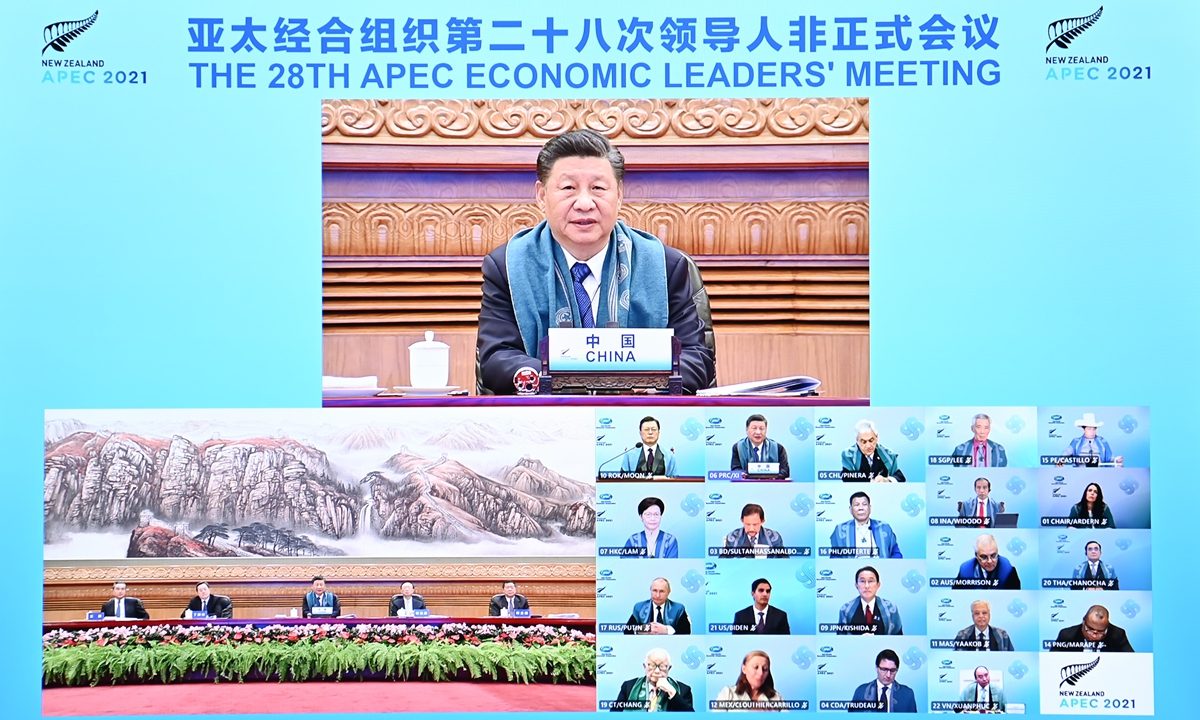
Chinese President Xi Jinping addresses the 28th Asia-Pacific Economic Cooperation (APEC) Economic Leaders’ Meeting via video link on November 12, 2021. Photo: Xinhua
More action and cooperation, especially on trade and investment, digital economies and sustainable development, is expected to be taken to help stabilize the industrial chain and drive economic development, and to fulfill the APEC Putrajaya Vision 2040 in building a resilient and peaceful Asia-Pacific community, analysts said, while also warning of threats posed by some countries that aim to create small cliques in the region.
In his speech at the meeting, President Xi proposed working on four directions, including advancing anti-COVID cooperation and promoting economic recovery, fostering an open Asia-Pacific economy, promoting innovation-driven development and digital economy, and pursuing inclusive and sustainable development.
"Openness is the lifeline of Asia-Pacific cooperation. We need to uphold open regionalism, follow the guidance of the APEC Vision 2040 in advancing regional economic integration, and work for the early realization of a high-standard Free Trade Area of the Asia-Pacific (FTAAP)," Xi said.
He noted that "We need to practice true multilateralism, stick to dialogue rather than confrontation, inclusiveness rather than exclusion, and integration rather than decoupling, and be resolute in safeguarding the multilateral trading regime with the World Trade Organization (WTO) at its core."
New Zealand was hosting the APEC Leaders' Week entirely online. APEC's member economies account for around 38% of the world's population and more than 60% of its gross domestic product.
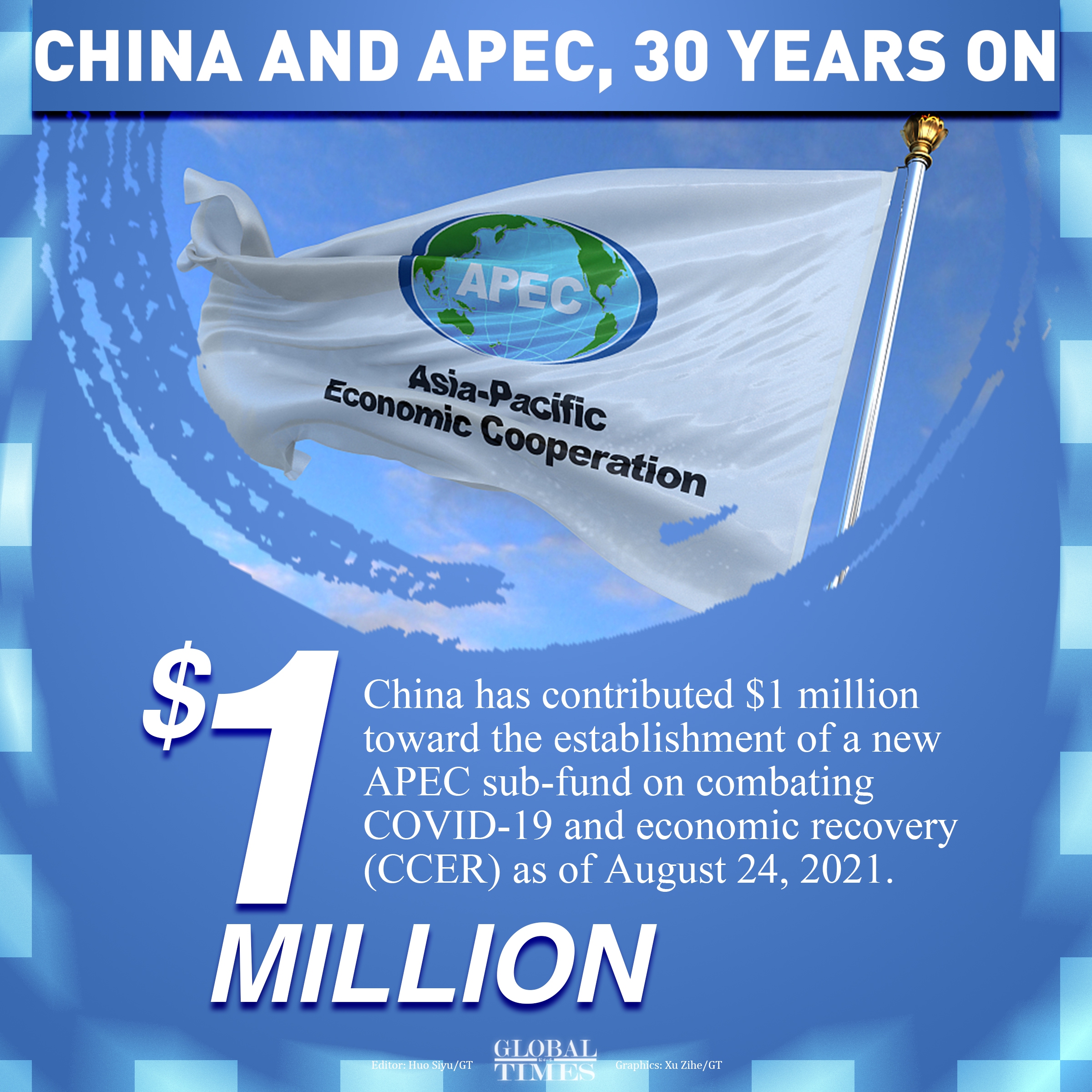
China and APEC, 30 years on. Graphic:Xu Zihe/GT
Economic recovery
New Zealand's theme for APEC 2021 is "Join. Work. Grow. Together. Haumi ē, Hui ē, Tāiki ē," under which leaders of regional countries discussed topics of trade and investment, innovation and digital economies and sustainable development.
The focus of APEC has shifted from battling against the coronavirus to boosting the region's economic growth, thereby propelling the global economic recovery, like the locomotive can lead the entire train, Liu Chenyang, director of APEC Study Center of Nankai University, told the Global Times.
"In the face of challenges, this year's meeting is the first with the aim of building a resilient and peaceful Asia-Pacific community by 2040. It also gives out a general consensus on the future development direction and path of APEC in the next 20 years," Liu said.
While growth is starting to recover in the region amid the pandemic, economic impacts will be felt for some time to come, analysts said, urging member economies to work together.
One of the difficulties hindering the region's economic cooperation is the restructuring of the industrial chain, Liu warned. "Many member economies decided to shorten the industrial chain and supply chain out of security and pandemic considerations. This influence on the Asia-Pacific region's value chain will be long-term."
"If we can take advantage of the Comprehensive and Progressive Agreement for Trans-Pacific Partnership (CPTPP) and the Regional Comprehensive Economic Partnership (RCEP), the Asia-Pacific region's economies will embrace structural opportunities. We also hope APEC could coordinate and drive the region, meanwhile play an essential role for the recovery and prospective development of WTO, because APEC has always been a proactive contributor of safeguarding multilateral trading regimes," Liu suggested.
The RCEP, the world's biggest trade pact that includes China and over a dozen other countries, will officially take effect on January 1, 2022, marking another milestone for regional and global economic cooperation as well as China's expanding trade profile.
China officially applied to join the CPTPP - a revised version of the initial Trans-Pacific Partnership initiated by the US aimed at containing China - in September, one day after the US, the UK and Australia announced an enhanced trilateral security partnership called AUKUS.
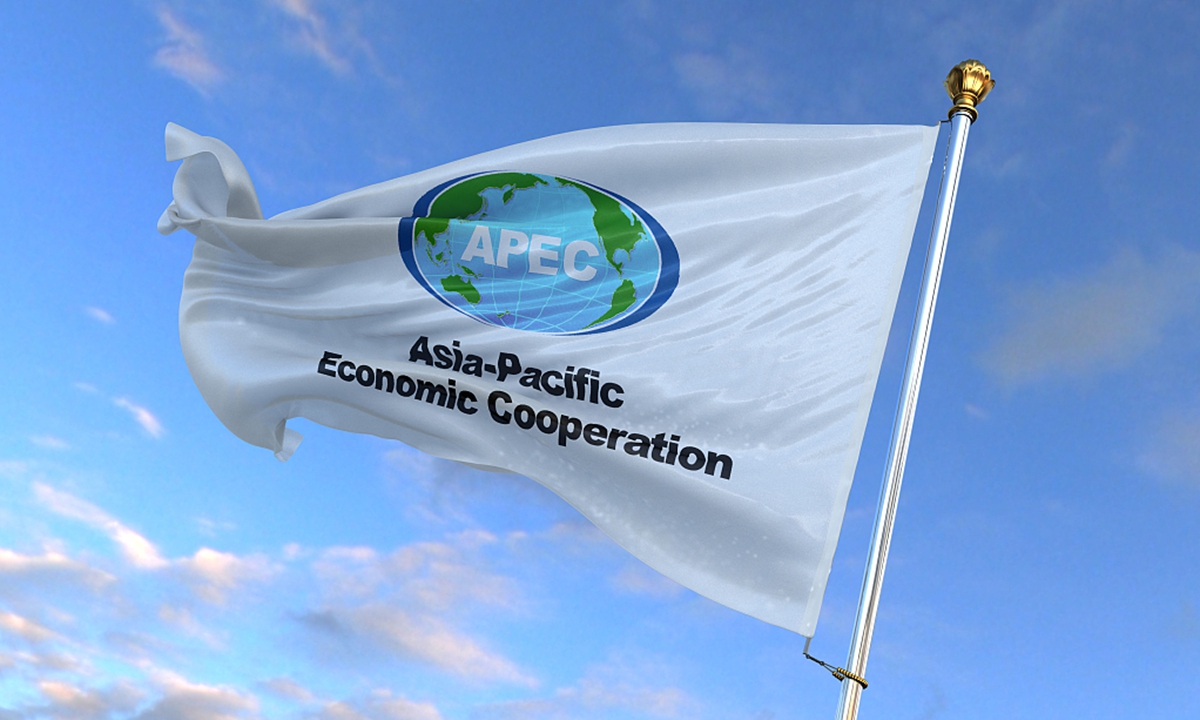
APEC. Photo: CFP
Choosing cooperation over small cliques
This year marks the 30th anniversary of China's joining APEC. President Xi said in his speech that it has been three decades of deepening reform and opening-up for China, and of broadening economic cooperation across the Asia-Pacific.
"Indeed, the Asia-Pacific region has become the most dynamic and promising economic powerhouse globally, staying at the forefront of world economic development, and making its positive contributions to global growth and to the well-being of people in the region," said Xi.
APEC has played a more important role in recent global economic development as it is the most dynamic region in the world that enjoys the most rapid development and has shown more tenacity in the post-pandemic recovery, Ruan Zongze, executive vice president of the China Institute of International Studies, told the Global Times.
Moreover, cooperation has always been the mainstream in the Asia-Pacific region on economic recovery and development of green economy, and drawing small cliques is unpopular in the region - the pandemic has helped strengthen regional countries' consensus on this view. Given this, President Xi has been invited to attend the meeting to offer China's approaches in fighting against the pandemic and achieving economic recovery and growth, Ruan said.
China has done the best in controlling the coronavirus epidemic and managed to recover its economy, which also boosted the regional economy given the close connectivity among Asia-Pacific countries and complementary industrial chains. The rapid development of China has also offered a wider market for regional countries, and the China International Import Expo (CIIE) is the best example, the expert noted.
The confidence foreign companies have in the vast Chinese market again paid off at the 4th CIIE in Shanghai, as more than $70 billion worth of intentional deals were inked during the world's largest import expo.
"Since China joined APEC in 1991, it has been a model for advancing APEC cooperation in a pragmatic manner. This is the consensus," Liu said.
In addition, China has made donations to set up cooperative funds in the region as it takes into account the interests of most APEC member states, experts said, stressing such donations have improved China's influence and leadership in the region.
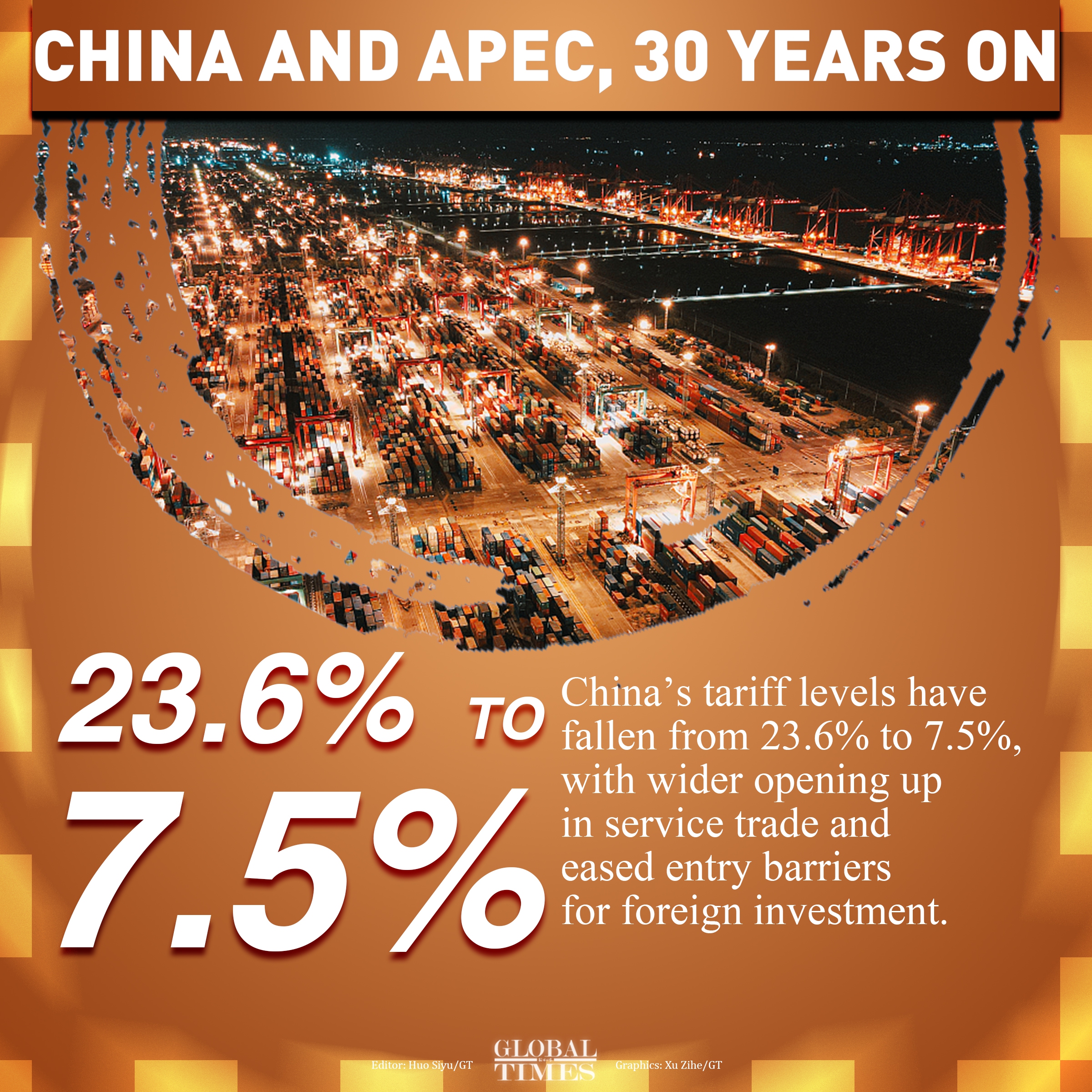
China and APEC, 30 years on. Graphic:Xu Zihe/GT
On Thursday, Xi attended the APEC CEO Summit through a prerecorded video and delivered a keynote speech, in which he highlighted China's commitment to advancing reform and opening-up to add impetus to economic development in the Asia-Pacific.
Ahead of the APEC leaders' meeting on Friday, China and the US on Wednesday released the China-US Joint Glasgow Declaration on Enhancing Climate Action in the 2020s. Analysts said this move will boost confidence in future bilateral cooperation within the framework of APEC if the US could work together with regional countries.
China-US relations suffered twists and turns under the Trump administration. The bad communication and cooperation between the world's two largest economies left other APEC members to wait and see, failing to concentrate on deepening cooperation within the region, experts noted.
To build a resilient and peaceful Asia-Pacific community by 2040, regional countries, especially China and the US, need to closely work together. However, the US and its allies' recent actions in drawing small cliques and targeting China, for example, AUKUS, have affected cooperation in the Asia Pacific, Ruan said.
Ruan noted that there is no market for confrontation and small cliques in the Asia-Pacific, and the US should not go against the global trend.
The US has offered to host APEC in 2023, which would be the country's first time since former president Barack Obama led the group in Hawaii in 2011, but it is yet to be decided, which some analysts said highlighted worries over possible negative influences if the US is putting geopolitics ahead of regional cooperation.
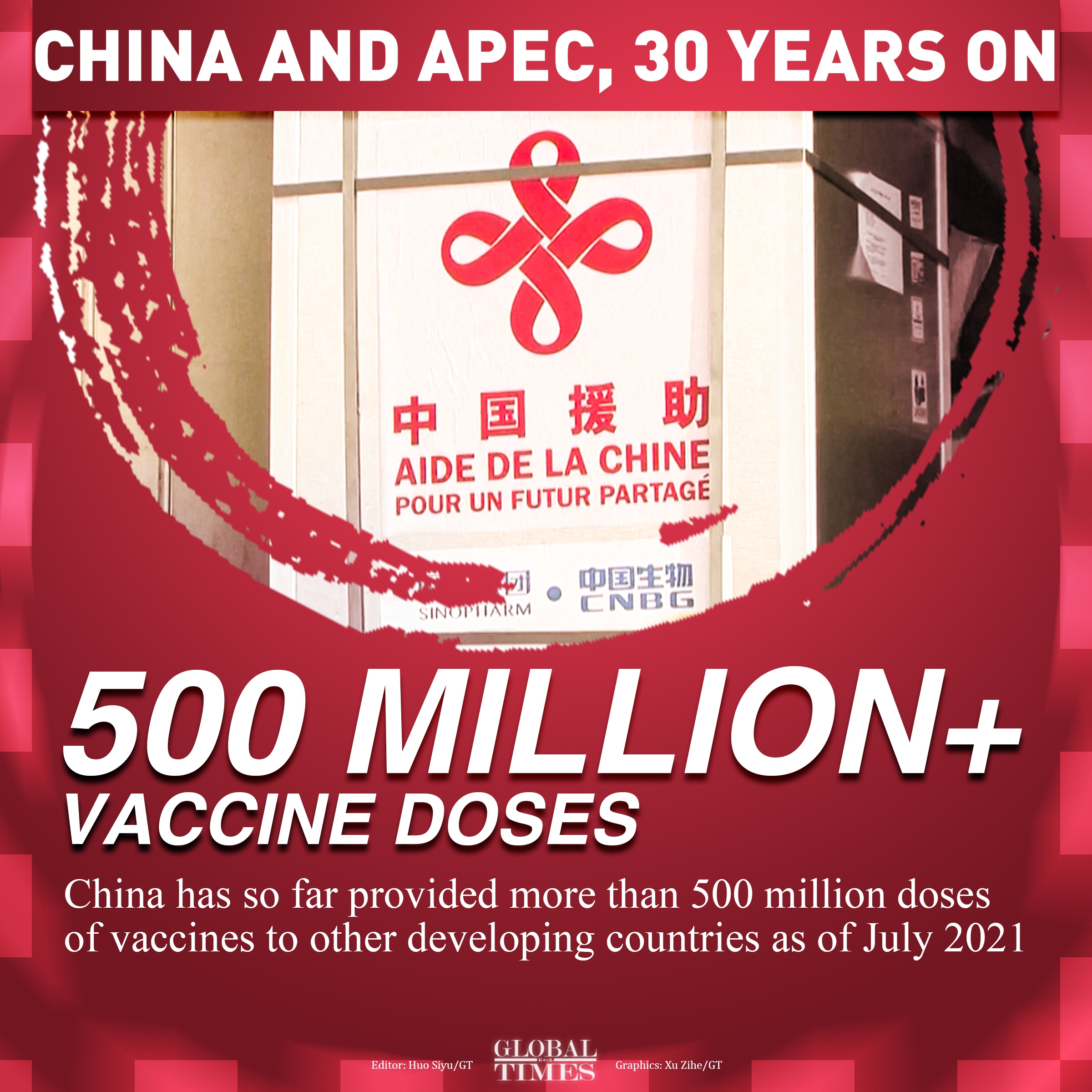
China and APEC, 30 years on. Graphic:Xu Zihe/GT
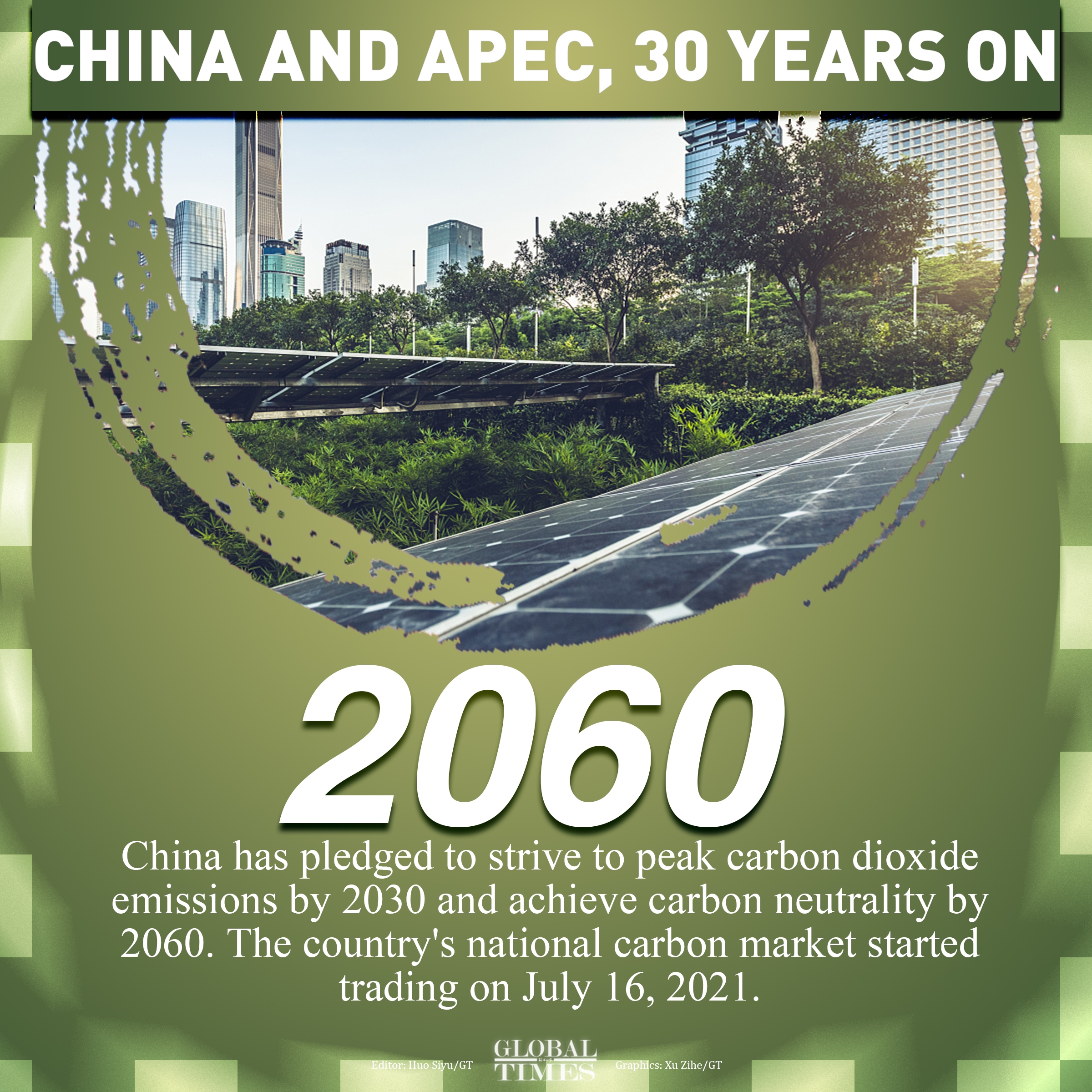
China and APEC, 30 years on. Graphic:Xu Zihe/GT
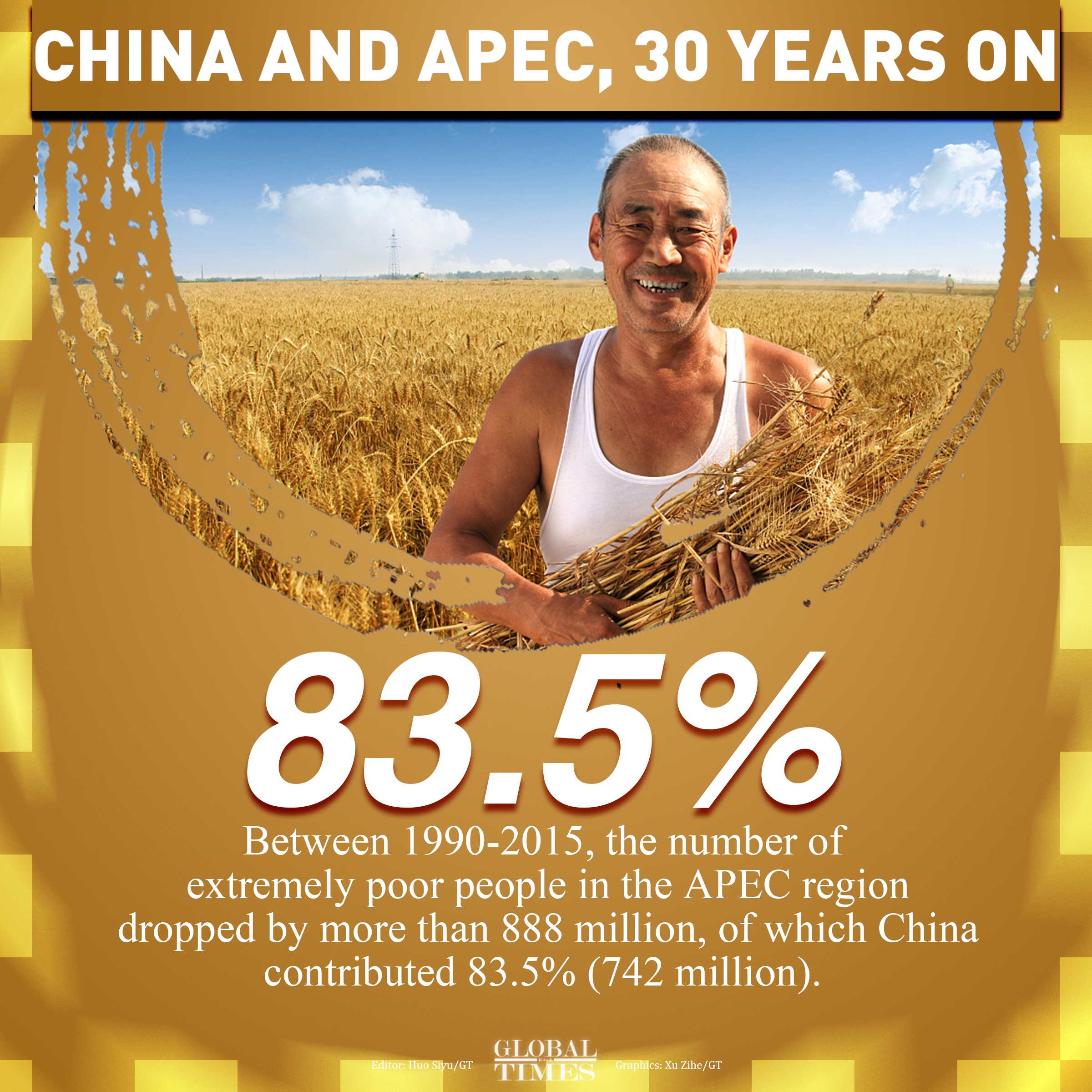
China and APEC, 30 years on. Graphic:Xu Zihe/GT
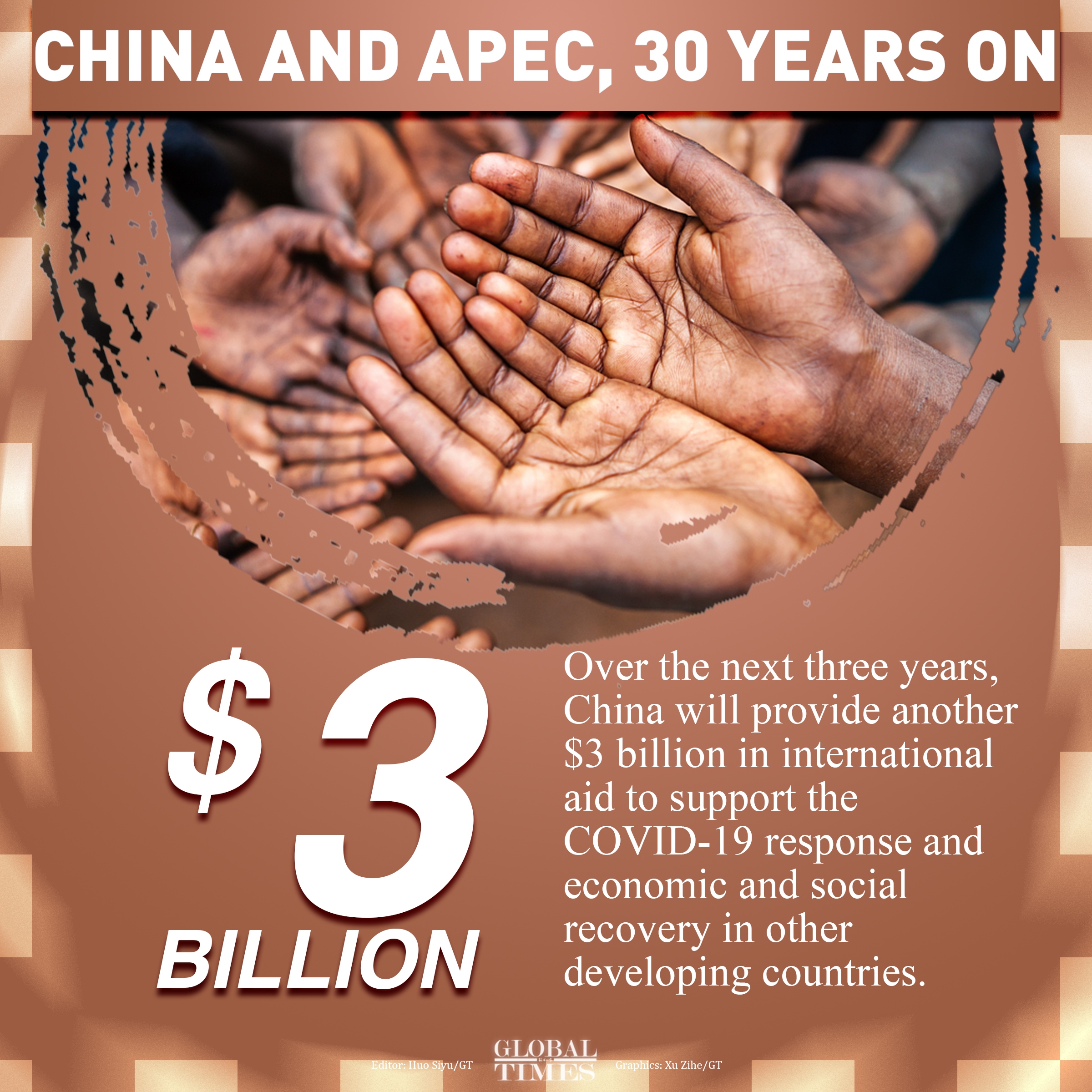
China and APEC, 30 years on. Graphic:Xu Zihe/GT


